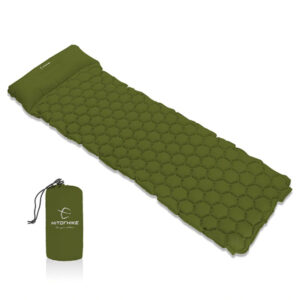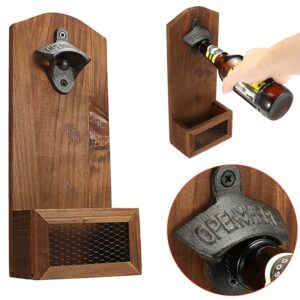Delivery Method: VIA Electronic Mail Reference #: 320-25-80 Product: Drugs Recipient:
Recipient Name
Mr. Luv Patel
Healwell Homeo Private Limited
Plot No. 215/1 220/1 & 221/1
Village Indrad, Tal Kadi, District Mehsana
Ahmedabad 382170
Gujarat
India
Issuing Office: Center for Drug Evaluation and Research (CDER)
United States
Warning Letter 320-25-80
June 12, 2025
Dear Mr. Luv Patel:
The United States Food and Drug Administration (FDA) inspected your drug manufacturing facility, Healwell Homeo Private Limited, FEI 3028192440, Plot No. 215/1 220/1 & 221/1, Village Indrad, Tal Kadi, District Mehsana, Ahmedabad, Gujarat, from December 13 to 20, 2024.
Your drug products are adulterated under section 501(a)(2)(A) of the Federal Food, Drug, and Cosmetic Act (FD&C Act), in that they have been prepared, packed, or held under insanitary conditions, whereby they may have become contaminated with filth or rendered injurious to health.
This warning letter also summarizes significant violations of Current Good Manufacturing Practice (CGMP) regulations for finished pharmaceuticals. See Title 21 Code of Federal Regulations (CFR), parts 210 and 211 (21 CFR parts 210 and 211).
Because your methods, facilities, or controls for manufacturing, processing, packing, or holding do not conform to CGMP, your drug products are adulterated within the meaning of section 501(a)(2)(B) of the Federal Food, Drug, and Cosmetic Act (FD&C Act), 21 U.S.C. 351(a)(2)(B).
As of the date of this letter, you have not responded to the Form FDA 483 inspectional observations, despite two inquiries from the Agency regarding your intent to do so. After FDA detained a shipment of drugs manufactured at your facility at the border on March 19, 2025, you sent an email, dated March 26, 2025, requesting a 90-day extension to respond to the Form FDA 483.
During our inspection, our investigator observed specific violations including, but not limited to, the following.
Insanitary Conditions
Your firm manufactures (b)(4) and over-the-counter (OTC) drug products. Your drug products are adulterated under section 501(a)(2)(A) of the FD&C Act because they were prepared, packed, and held under insanitary conditions. Specifically, our investigator observed evidence of both rodent and avian activity, including the presence of live rodents and birds, as well as extensive rodent and avian excreta in areas where container-closure systems and finished drug products are stored. Further, the investigator observed the following:
- Apparent rodent excreta pellets throughout the finished product storage area, as well as areas containing drug packaging and packaging containers (boxes and uncapped (b)(4) vials).
- Birds living in storage areas, bird droppings and feathers on walls, floors, and throughout the packaging and labeling materials storage area.
- Unknown black mold-like material on the ceiling above manufacturing equipment and on the wall adjacent to open (b)(4) tanks and filling lines.
- Insects in manufacturing areas.
- Stray dogs loitering near open entryways with soiled (b)(4) serving as the only barrier to entry.
- (b)(4) used in manufacturing was stored outdoors in dirty drums.
In response to this letter, provide:
- A comprehensive plan to decontaminate the facility, given the pervasive nature of the insanitary conditions.
- Your corrective action and preventive action plan to implement routine, vigilant operations management oversight of facilities and equipment. This plan should ensure, among other things, prompt detection of equipment/facilities performance issues, effective execution of repairs, adherence to appropriate preventive maintenance schedules, timely technological upgrades to the equipment/facility infrastructure, and improved systems for ongoing management review.
- Detailed procedures that demonstrate your firm can maintain buildings free from pests and that they remain in a clean and sanitary state.
CGMP Violations
1. Your firm failed to conduct at least one test to verify the identity of each component of a drug product. Your firm also failed to validate and establish the reliability of your component suppliers’ test analyses at appropriate intervals (21 CFR 211.84(d)(1)) and 211.84(d)(2).
You failed to adequately test samples of your incoming components before using them to manufacture your (b)(4) and OTC drug products. During the inspection, you informed the investigator that you reviewed certificates of analysis (COAs) for incoming materials, but did not perform identity testing, did not verify the supplier COA, and did not have a quarantine or approval process.
Furthermore, you used (b)(4) as a component in some of your drug products. Our investigator documented that you received (b)(4) from your supplier in (b)(4) drums that bear the label (b)(4). You stated that you did not test this (b)(4) prior to use in production. It is unacceptable to not conduct identity testing on a drug competent, especially knowing it is labeled as another component.
At a minimum, you must use (b)(4) (refer to USP General Chapter (b)(4)) to manufacture your non-sterile drug products. (b)(4) must be suitable for its intended use and routinely tested to ensure ongoing conformance with appropriate chemical and microbiological attributes. You have not demonstrated that the (b)(4) is suitable for use and meets the USP (b)(4) monograph.
Without adequate testing, you do not have scientific evidence that the components conform to appropriate specifications prior to use in the manufacture of your drug products.
In response to this letter, provide:
- A comprehensive review of your material system to determine whether all suppliers of components, containers, and closures, are each qualified and the materials are assigned appropriate expiration or retest dates. The review should also determine whether incoming material controls are adequate to prevent use of unsuitable components, containers, and closures.
- The chemical and microbiological quality control specifications you use to test and release each incoming lot of components for use in manufacturing.
- A description of how you will test each component lot for conformity with all appropriate specifications for identity, strength, quality, and purity. If you intend to accept any results from your supplier’s COA instead of testing each component lot for strength, quality, and purity, specify how you will robustly establish the reliability of your supplier’s results through initial validation as well as periodic revalidation. In addition, include a commitment to always conduct at least one specific identity test for each incoming component lot.
- A summary of your program for qualifying and overseeing contract facilities that test the drug products you manufacture.
- Provide scientific justification to demonstrate the (b)(4) you use is suitable for use in drug manufacturing operations. If you determine the (b)(4) you used to manufacture drugs was not suitable, provide a detailed risk assessment addressing the potential effects on the quality of all drug product lots currently in U.S. distribution and within expiry. Specify actions you will take in response to the risk assessment.
2. Your firm’s quality control unit failed to exercise its responsibility to ensure drug products manufactured are in compliance with CGMP, and meet established specifications for identity, strength, quality, and purity (21 CFR 211.22).
During the inspection, our investigator observed that your quality unit (QU) did not provide adequate oversight for the manufacture of your OTC drug products. For example, your QU failed to ensure the following:
- Establishment of written procedures for numerous functions including, but not limited to, complaints, deviations, investigations, cleaning and maintenance of equipment, employee training, and labeling operations (21 CFR 211.22(d)).
- Adequate validation of production and process controls used in the manufacture of your drug products, including qualification of the equipment used in drug manufacturing (21 CFR 211.100(a)).
- Appropriate batch production and control records that include documentation of the accomplishment of each significant step in manufacturing of your drug products (21 CFR 211.188(b)).
- Adequate written procedures for test methods and sampling plans (21 CFR 211.160(b)).
- Adequate cleaning procedures as well as appropriate cleaning validation (21 CFR 211.67(a) and 211.67(b)).
Your firm’s quality systems are inadequate. See FDA’s guidance document Quality Systems Approach to Pharmaceutical CGMP Regulations for help implementing quality systems and risk management approaches to meet the requirements of CGMP regulations 21 CFR, parts 210 and 211 at https://www.fda.gov/regulatory-information/search-fda-guidance-documents/quality-systems-approach-pharmaceutical-current-good-manufacturing-practice-regulations.
In response to this letter, provide the following:
- A comprehensive assessment and remediation plan to ensure your QU is given the authority and resources to effectively function. The assessment should also include, but not be limited to:
o A determination of whether procedures used by your firm are robust and appropriate.
o Provisions for QU oversight throughout your operations to evaluate adherence to appropriate practices.
o A complete and final review of each batch and its related information before the QU disposition decision.
o Oversight and approval of investigations and discharging of all other QU duties to ensure identity, strength, quality, and purity of all products. - A detailed summary of your validation program for ensuring a state of control throughout the product lifecycle, along with associated procedures. Describe your program for process
Healwell Homeo Private Limited, Ahmedabad FEI 3028192440 page 5
performance qualification (PPQ), and ongoing monitoring of both intra-batch and inter-batch variation to ensure a continuing state of control. - A timeline for performing PPQ for each of your marketed drug products.
- A detailed program for designing, validating, maintaining, controlling, and monitoring each of your manufacturing processes that includes vigilant monitoring of intra-batch and inter-batch variation to ensure an ongoing state of control. Also, include your program for qualification of your equipment and facility.
Drug Recall
After the inspection, FDA made multiple unsuccessful attempts to schedule a teleconference with you to recommend removing your drug products from the U.S. market. On April 2, 2025, FDA held a call with your distributor, (b)(4), to provide notice of the conditions at your facility and recommend market action. On April 8, 2025, (b)(4), initiated a recall of products manufactured at your facility, currently in U.S. distribution.
Conclusion
The violations cited in this letter are not intended to be an all-inclusive list of violations that exist at your facility. You are responsible for investigating and determining the causes of any violations and for preventing their recurrence or the occurrence of other violations.
FDA placed all drugs and drug products offered for import into the United States from your firm on Import Alert 66-40 on March 31, 2025.
Correct any violations promptly. FDA may withhold approval of new applications or supplements listing your firm as a drug manufacturer until any violations are completely addressed and we confirm your compliance with CGMP. We may re-inspect to verify that you have completed corrective actions to any violations.
Failure to address any violations may also result in the FDA continuing to refuse admission of articles manufactured at Healwell Homeo Private Limited, FEI 3028192440, Plot No. 215/1 220/1 & 221/1, Village Indrad, Tal Kadi, District Mehsana, Ahmedabad, Gujarat, into the United States under section 801(a)(3) of the FD&C Act, 21 U.S.C. 381(a)(3). Articles under this authority that appear to be adulterated may be detained or refused admission, in that the methods and controls used in their manufacture do not appear to conform to CGMP within the meaning of section 501(a)(2)(B) of the FD&C Act, 21 U.S.C. 351(a)(2)(B).
This letter notifies you of our findings and provides you an opportunity to address the above deficiencies. After you receive this letter, respond to this office in writing within 15 working days. Specify what you have done to address any violations and to prevent their recurrence. In response to this letter, you may provide additional information for our consideration as we continue to assess your activities and practices. If you cannot complete corrective actions within 15 working days, state your reasons for delay and your schedule for completion.
Send your electronic reply to CDER-OC-OMQ-Communications@fda.hhs.gov. Identify your response with FEI 3028192440 and ATTN: Rokshana Safaai-Jazi.
Sincerely,
/S/
Francis Godwin
Director
Office of Manufacturing Quality
Office of Compliance
Center for Drug Evaluation and Research






